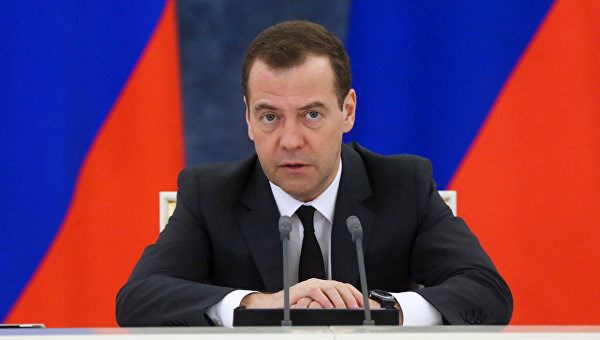Russian Prime Minister Medvedev wants to make Russia world’s 5th largest economy
Russian Prime Minister Dmitry Medvedev has signed a decree confirming a plan to make Russia into one of the world’s top five economies, finanz.ru reports.
According to the plan, which was published on the official government website on Wednesday, Russia is expected to oust Germany from 5th position by 2023.
“At present, Russia holds the 6th position for GDP at purchasing power parity (PPP) according to the IMF’s assessment. In 2017, the lag behind Germany (which holds 5th position) on this indicator was 4.4%, whereas Russia’s GDP was bigger than Indonesia’s, which holds 7th position, by 19.1%,” Medvedev’s plan states.
According to the Russian government’s estimates, the country’s GDP will grow by only 1.3% in 2019 (compared to 2.3% last year), but the following year it will start to accelerate, first to 2% (in 2020), and then to 3.1%, 3.2% and 3.3% in the following years respectively.
“Such growth rates will be enough to close the gap between Russia’s GDP at PPP and that of Germany, which holds the 5th position in the world, and will make it possible to maintain the positive lead compared to Indonesia, which is in 7th position. It will also be above the predicted growth rate of the world economy,” the document states.
However, the Russian government’s predictions of a glorious growth rate are not shared by a single major investment bank or international organization.
The IMF, for example, predicts that Russia will continue to lag behind the world growth rate, with its proportion of the world GDP shrinking from 3.12% to 2.79% by 2024.
In a survey of professional forecasters performed by the Moscow Higher School of Economics in October last year, not a single respondent expected the Russian economy to grow by even 2%.
Oxford Economics predicts a slowdown from 2.3% last year to 1.4% this year and 1.2% in 2020. The Economist Intelligence Unit expects no more than 1.6-1.8% over the next few years.
Although the government plans to invest nearly 25 trillion rubles (around $384 billion) in the economy for national projects, the problem is that this “acceleration” will be financed through raised taxes and pension growth, which will hit businesses and consumers, explains Natalia Orlova, chief economist at Alfa-Bank.
Orlova predicts that the net effect of all the planned measures will be no more than 0.1% of the GDP, and the threshold growth rate by 2024 will be only 1.6%.
